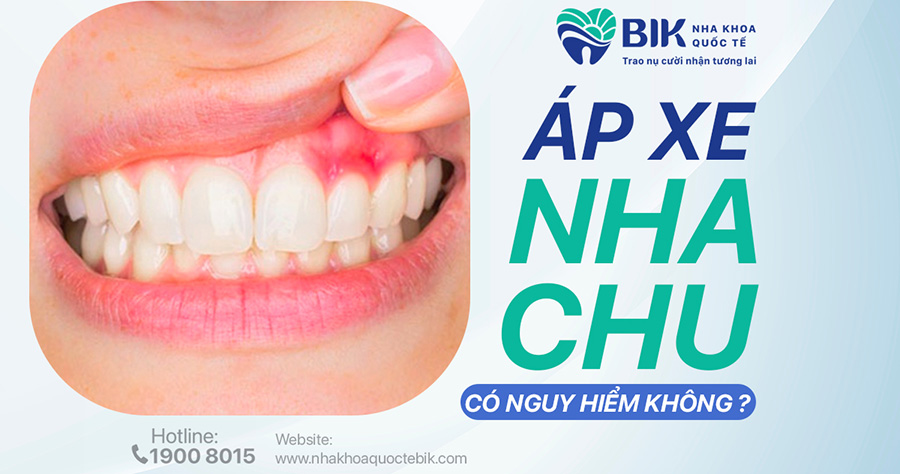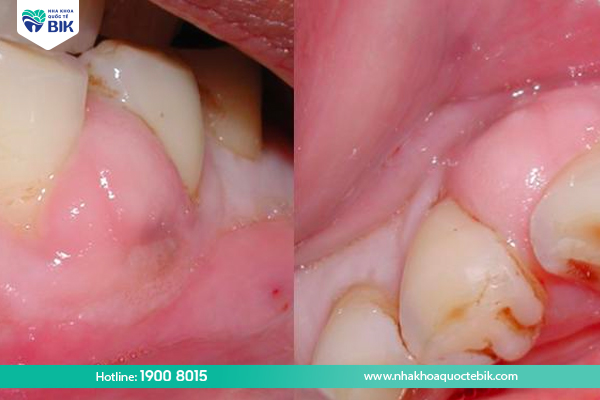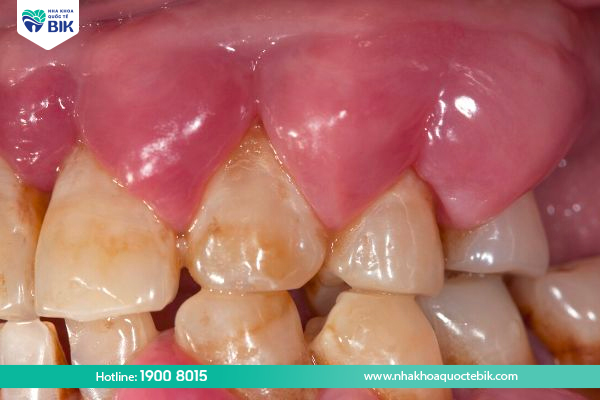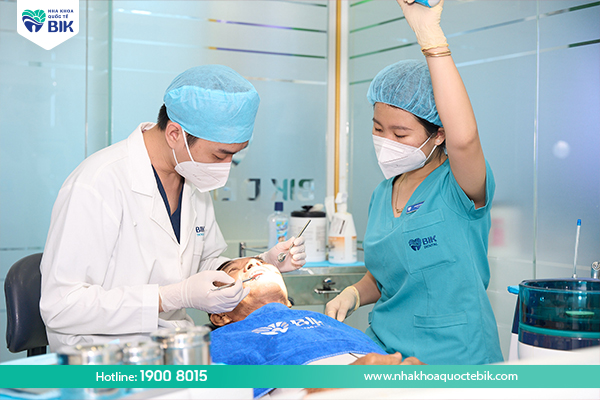
Periodontal abscess is an infection that causes a pus-filled abscess at the base of the tooth. This condition occurs in most cases due to complications of periodontitis that are not treated promptly. This disease will move back and forth between different stages, so it is often difficult to detect, but it will silently cause serious effects on overall health.
1. What is a periodontal abscess?
Periodontal abscess is a localized infection. Bacteria from the periodontal pocket, when conditions are favorable, will invade and attack the tissues around the tooth. Here, they will trigger an inflammatory reaction, creating periodontal abscesses containing pus that accumulate in the connective tissue of the periodontal pocket. The infection causes rapid destruction of the adjacent alveolar bone as well as the periodontal ligament.

2. Causes of periodontal abscesses
Periodontal abscesses can be caused by the following reasons:
2.1. Periodontal disease
The leading cause of periodontal abscesses is periodontal disease. Periodontal disease is actually a more severe progression of common gingivitis. If gingivitis is not treated for a long time, it will lead to periodontitis. At this time, the patient will experience some symptoms such as bleeding gums, swollen gums, red gums, bad breath, plaque on teeth, etc.
If periodontitis is still not treated with specialized measures, abscesses will begin to form and the patient may face the risk of tooth loss.
2.2. Lesions in the furcation area
Many studies have shown that periodontal abscesses are the leading cause of molar extraction and when comparing tooth loss due to periodontal abscesses, the rate of furcation lesions is quite high. Abscess pus pockets often appear in the furcation area, mainly in cases of periodontal abscesses in wisdom teeth or molars.
2.3. Use of antibiotics

Many studies have shown that many patients with periodontitis do not undergo intensive treatment but at the same time use systemic antibiotics to treat other diseases, leading to periodontal abscess in a short time.
Therefore, systemic antibiotics can lead to superinfection with bacteria and lead to the formation of periodontal abscess pus pockets.
2.4. Periodontal pocket closure
In cases where the periodontal pocket is closed for any reason, the ability to eliminate bacteria is significantly reduced. This creates an opportunity for bacteria to accumulate more and attack, causing periodontal abscesses.
Causes of blocked periodontal pockets can be foreign objects, dirt, leftover food, etc. In addition, if dental plaque is not cleaned when treating periodontal disease, it can also lead to abscess formation.
2.5. Diabetes
Diabetes, cardiovascular disease or some other chronic diseases are also causes of periodontal abscesses. These patients will have low immunity, so bacteria will have a more favorable opportunity to attack and form abscesses.
3. Symptoms of periodontal abscess

Patients with periodontal abscess may experience mild to severe pain and the abscessed area will feel uncomfortable and sore. Teeth become sensitive, move or loosen, protrude, have bad breath, swollen local lymph nodes and fever. These symptoms appear quite clearly when the disease is in an acute inflammatory state.
If not treated promptly, periodontal abscess will become chronic. The symptom of the disease at this time is a fistula from deep structures opening to the gum mucosa along the tooth root and the mouth of the hole can be covered by granulation tissue so it will be difficult to detect. At this stage, periodontal abscess often has no obvious symptoms but the patient will feel a slight dull pain, the tooth is slightly protruding and feels like just wanting to clench the tooth.
4. Treatment of periodontal abscess

To treat a periodontal abscess, the doctor will perform an incision or incision with drainage to remove plaque, tartar, food debris or other foreign objects that cause the abscess. Treatment may also include irrigation of the periodontal pocket and adjustment of the bite if necessary.
In addition, systemic antibiotics may also be prescribed in cases where the patient has a fever or other signs of systemic infection. In addition, patients also need to cooperate with their doctor in treatment by using pain relievers as prescribed, rinsing their mouth with salt water and having a reasonable diet.
Periodontal abscess occurs when pus accumulates around the tooth, so the first thing to do is to drain the pus and then the doctor will carefully consider whether to try to keep the tooth or remove it.
Patients are encouraged to use warm salt water to rinse their mouth during treatment to facilitate drainage. Once the lesion has stabilized, root planing or periodontal surgery may be needed to stimulate rapid healing.
5. How to prevent periodontal abscess?

To prevent periodontal abscess, customers need to note the following:
– Periodontal inflammation should be treated as soon as it is detected, to avoid serious disease progression leading to the formation of abscesses as well as other serious effects.
– Periodontal examination every 6 months so that the doctor can detect oral diseases and treat them promptly if any.
– Proper oral hygiene at least twice a day. Choose a soft-bristled toothbrush and brush your teeth with moderate force.
– Combine the use of dental floss or a water flosser to completely remove food debris in between teeth.
So periodontal abscess is one of the quite dangerous oral diseases, occurring due to many different causes. To avoid more serious complications, customers should visit and receive treatment at reputable dental facilities with a team of good doctors with many years of experience in the field of dentistry.


















